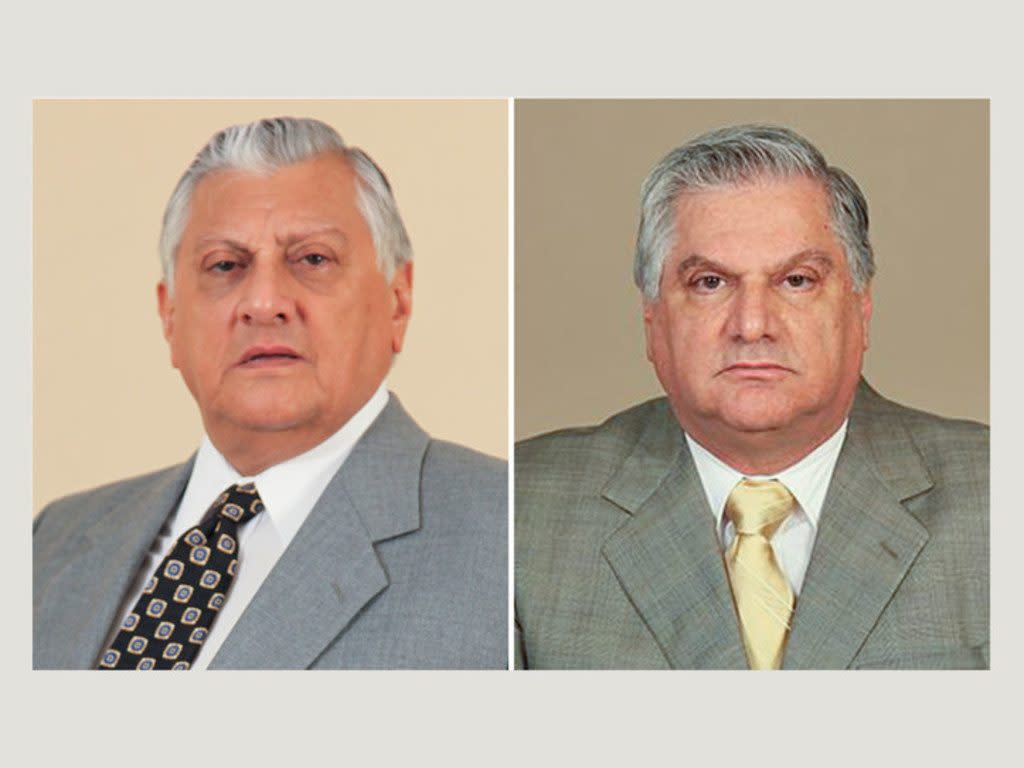ICE Arrests Ecuadorean Expatriates Locked in Lengthy Legal Battle in Miami

William and Roberto Isaias. Photos: Wikimedia
Immigration officials apprehended a pair of Ecuadorean brothers who'd been residing in Miami for more than a decade in the midst of heated and long-running litigation.
U.S. Immigration and Customs Enforcement arrested Roberto and William Isaías on Feb. 13. ICE representative Nestor Yglesias said the brothers were "unlawfully present" in the U.S., and have been "transferred to ICE’s Enforcement and Removal Operations" for deportation proceedings following their arrest. Yglesias added the pair is "in agency custody pending removal proceedings.”
The detainment of the Isaías brothers marks the latest twist in a legal saga that's spanned a decade. In 2009, Ecuador accused both brothers of fraud in a civil lawsuit filed in Miami-Dade Circuit Court. The complaint alleged the pair had embezzled $661 million from Filanbanco, an Ecuadorean bank where Roberto and William served as executive president and executive vice president, respectively, until 1998. The Ecuadorian government had injected more than $1 billion into Filanbanco to keep it solvent in the midst of an international financial crisis during the late 1990s. In the filing, Ecuador argued the brothers made off with money that'd been intended to preserve the bank's health.
Filanbanco closed in 2001 and the Isaías brothers moved to Miami in 2003 to avoid arrest for their purported role in the collapse of Ecuador's banking institutions. A Feb. 15 New York Times report on the brothers' arrest noted an Ecuadorean court convicted them of embezzlement in 2012.
The brothers blame Filanbanco's closure on mismanagement by the Ecuador government.
The 2009 lawsuit sought to recover the assets, but it's spent about a decade bouncing between Miami-Dade Circuit Court and the Third District Court of Appeal. Miami-Dade Circuit Judge John Thornton tossed the case in 2015 on the grounds Ecuador lacked standing and the statute of limitations had ran out on its charges. However, the suit was revived after the Third DCA reversed and remanded Thornton's findings in December 2017.
The Isaías brothers' longtime attorney, Lewis Tein partner Michael Tein, was joined by several lawyers in his motion for a rehearing en banc. The team argued the Third DCA's ruling represented a violation of both Florida and federal constitutional protections ensuring due process, in addition to being a capitulation to the whims of foreign governments.
Tein on Tuesday cited a report by the U.N. Human Rights Committee, which found that Ecuador's own trial against his clients “violated their due process and human rights to be tried by an independent court” and ordered the country to “make full reparations” to the Isaías brothers.
Read the United Nations report:
The Miami attorney also said he was concerned for his clients' well-being under detainment.
"These men, both in their mid-70s, have never committed a crime anywhere in the world," Tein said. "They are being held at Krome without bond and without an opportunity for a judge to hear them. ICE has marked them for deportation this coming Saturday. This is a massive violation of their constitutional rights. How can ICE undermine the Constitution and the U.S. State Department this way?"
Squire Patton Boggs partners Alvin Davis and Digna French have represented Ecuador since 2009. French said the siblings' arrest caught her and Davis by surprise.
"I don’t know what’s going to happen to the underlying case," she said, noting that liability had been established against the defendants. "Right now we’re still going forward; nothing has indicated we should stop that effort."
French added, "Hopefully, finally, justice will be served and they will repay everything they owe."
Related stories:
Ecuador May Pursue $20 Million Claim In Miami Against Brothers Who Allegedly Defrauded Bank
Judge Drops Ecuador's Suit Against Brothers Accused of $662 Million Bank Embezzlement
Attorneys Fear Ruling Exposes Florida to Baseless International Decrees



